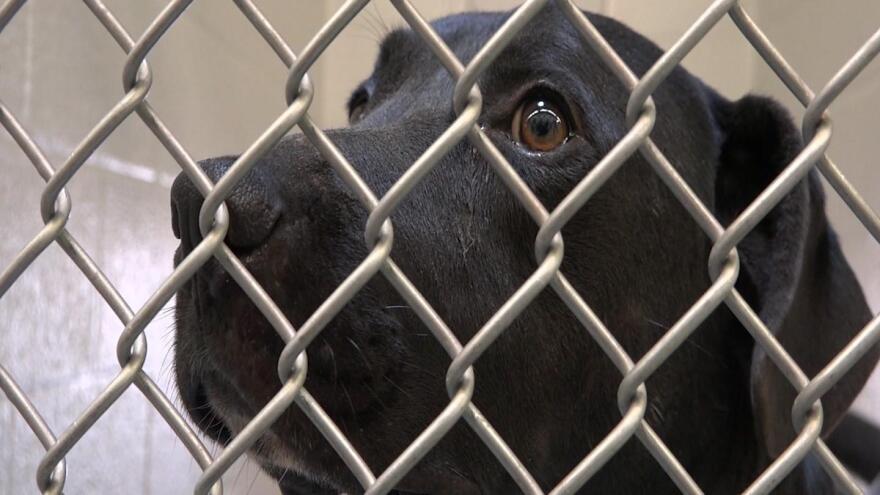EASTON, Pa. — Some people say they’re dog or cat people, but Sarah Wees is emphatically both and ready to get them all taken care of.
Wees is the new executive director of the Center for Animal Health and Welfare in Easton.
- Sarah Wees is the new executive director of the Center for Animal Health and Welfare in Easton
- She has a number of goals for the position, including a TNR program and a new building
- Community involvement is at the forefront of her mind
She said she started her work in communications, but began volunteering in shelters almost 30 years ago. She made the transition to animal welfare work after taking an online certificate program in advocacy management from the Humane Society of the United States.
Wees said she has a number of goal in her new position.
“I'm hoping to keep the shelter on its current path of just moving forward and growing the programs that are here," she said, citing Project Paw, which she called "our kind of little satellite thrift store and cat cafe in Easton."
“That concept is right in line with community supported animal services and animal welfare, which is the direction that this field is going," she said.
"It used to just be, you know, animals would come to a shelter, they would sit there until they got home, then they would get adopted. Now the community is more involved.”
Wees also hopes to develop a trap, neuter and release — or TNR — program for the outdoor cats of the Lehigh Valley.
“There are so many feral cats," she said. "Every community you go to, there's feral cats. And TNR programs work really well to help that population stay kind of at a relatively manageable level.”
As for long-term goals, Wees said she would love to see a newer facility.
“This organization has been in the community for 110 years," she said. "And although our current buildings aren't necessarily 110 years old, they are old and they do show their wear and tear.
"If the community could invest in a brand new facility or seriously updating the current facility, we would be able to help more animals [and] provide better quality care.”
"It used to just be, you know, animals would come to a shelter, they would sit there until they got home, then they would get adopted. Now the community is more involved."Sarah Wees, executive director of the Center for Animal Health and Welfare
Wees said she moved from Virginia to the Lehigh Valley for the position, and she said she already feels welcome. She also feels that the work she is doing pays dividends, which has made the shift worth it.
“I say 'Hi' to every little furry face in there," she said. "I want to go through and look at the faces that I'm helping: the reason I'm here.
"And that just kind of gives me motivation. And I know at the end of the day that something I've done that day, some connection I've made or some decision I've made helps those animals, and it's incredibly rewarding.”


